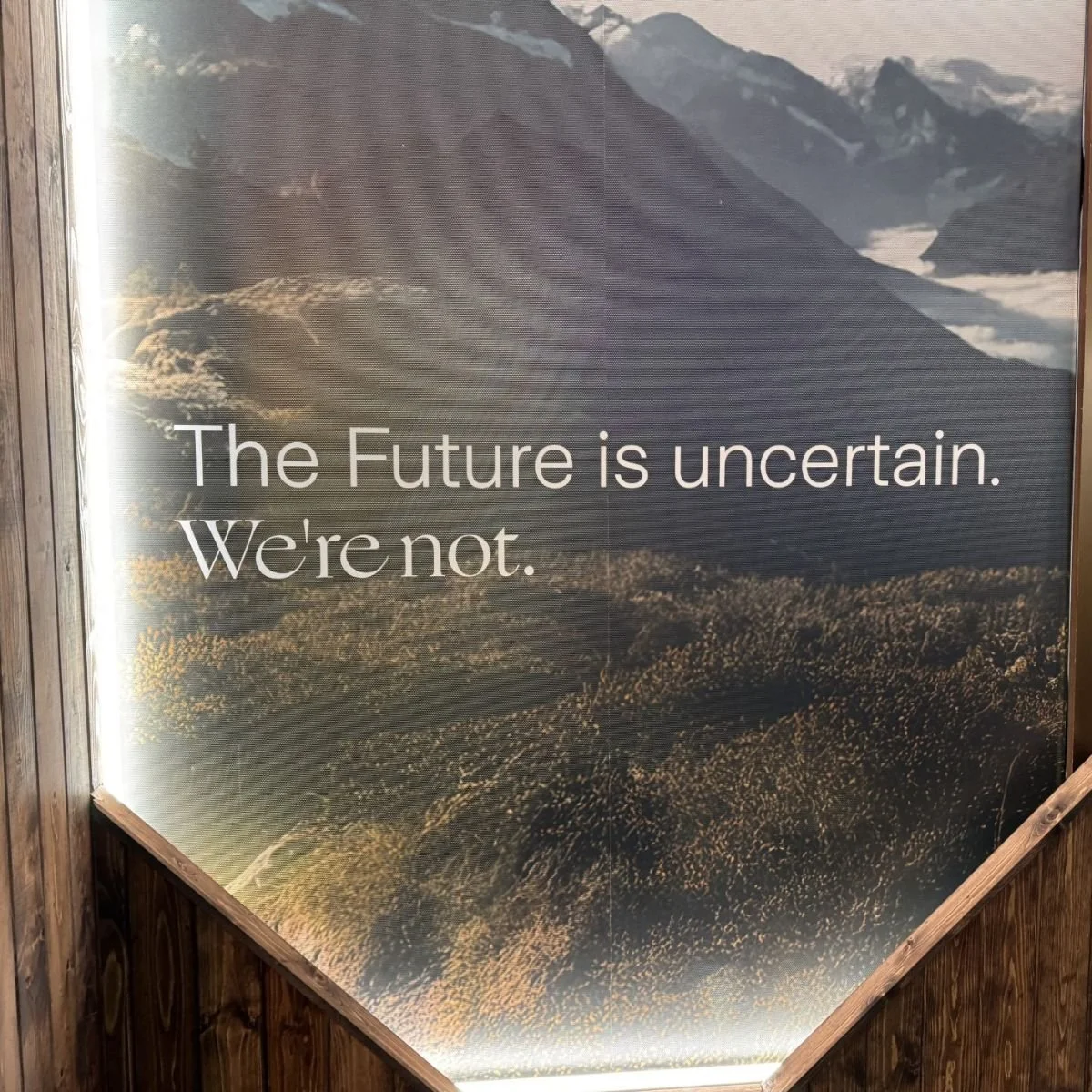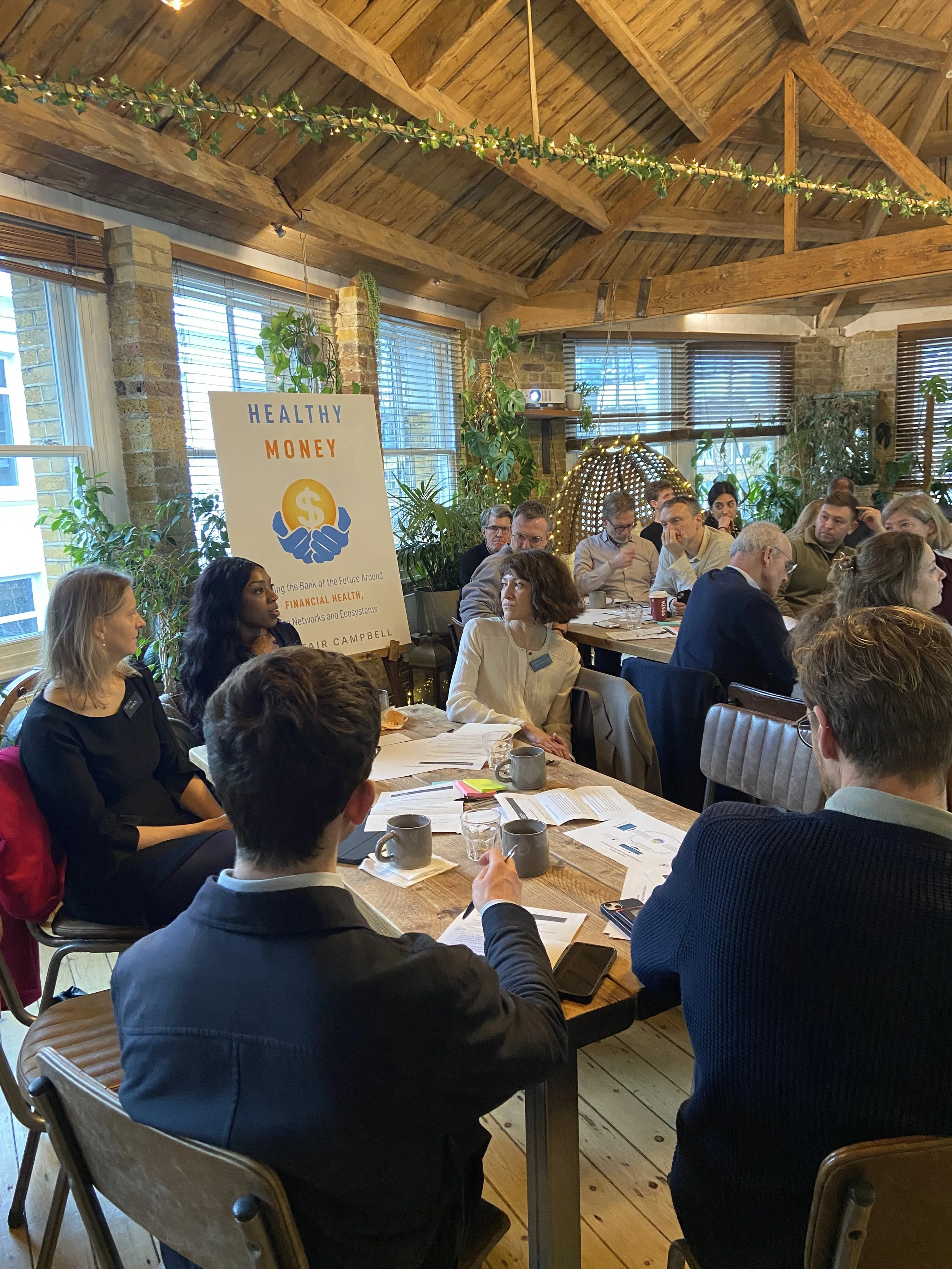Embedding Mutuality into Corporate Strategy
October 2025 | Economics of Mutuality Leaders Stories
A Conversation with Alessandro Presti
Having built his career in management consulting Alessandro Presti spent years advising consumer goods companies and private equity investors on strategic growth, innovation, and operational performance. The work was stimulating, but by nature project-based and time-limited.
Moving into Mars as Vice President Corporate Strategy, then Head of Corporate Strategy in 2021, Alessandro quickly noticed a different challenge. Strategy here was about building resilience and value across an indefinite time horizon. “At Mars, there’s no fixed end point,” he explains. “The question becomes not just what you deliver in the next 12 months, but also how you do business in a way that can sustain value over decades. That’s where mutuality becomes essential.”
More Than Business Philosophy
Alessandro is open about his early impressions of ‘mutuality’.
“When I was first introduced to the Economics of Mutuality principles, I maybe had some misconceptions, that it’s simply a ‘goodie save the world’ sort of business philosophy,” he says. “But it’s really a way of solving business problems. People at Mars, myself included, really care about our consumers, the people we work with, the communities we operate in and our suppliers. But even if we didn’t, I still think it's a useful way of thinking.”
This clarity was sharpened in 2020 when Alessandro completed the Leading With Purpose executive course delivered by the Economics of Mutuality Alliance. The program, designed to help business leaders rethink strategy through the lens of multiple forms of capital, gave him a new perspective on value creation.
“One of the insights that really resonated with me was to treat markets as ecosystems rather than as spaces where the company is the centre of gravity,” he reflects. “Too often strategy is developed inside-out: we decide what we want to do, and then look for ways to bring customers, suppliers, or communities along. The course reframed that entirely, it forced me to think outside-in. If Mars didn’t exist, what needs would still be there? And how could we create unique value by addressing them?”
That reframing, he says, is more than philosophical. It is a discipline that helps avoid common strategy pitfalls: “I’ve seen situations where companies invest in what they wish the world needed, rather than what it actually does. The Economics of Mutuality framing helps prevent that by anchoring decisions in stakeholder needs.”
Applying Mutuality in Pet Care
One of the areas where Alessandro sees this approach making the greatest impact is in Mars’ veterinary health business. Pet care is a space filled with opportunities but also big systemic challenges.
“Veterinary professionals face real pressures,” he explains. “In the United States, many graduate with significant debt. The work itself can be emotionally draining — dealing with sick animals and stressed pet owners — and we see high attrition from the profession. On the pet owner side, access to veterinary care can be challenging, whether due to cost, a shortage of veterinary professionals, or other factors.”
Rather than treating these as external risks, Mars is embedding mutual value creation into its business model. Wellness plans make costs more predictable for pet owners. Programs to support existing veterinary professionals and build a bigger talent pipeline are being scaled. These efforts, Alessandro stresses, are not CSR initiatives; they are fundamental to the long-term health of the business.
“If you’re not consistently providing value to your stakeholders — whether consumers, associates, or communities — eventually someone else will,” he says. “You might hold onto market share in the short term because of brand strength or historical advantages, but disruption will come if you’re not addressing real needs. Mutuality is a way of ensuring sustainability over time.”
Measuring What Matters
Another theme from the Leading With Purpose course that has stuck with Alessandro is the question of measurement. “There’s a management cliché that says, ‘you can’t manage what you can’t measure.’ I’ve never liked it,” he admits. “Of course you can manage things you can’t precisely measure. Trust, licence to operate, employee wellbeing — these are hugely valuable. They may not show up neatly in financial reporting, but they become very easy to measure once you’ve lost them.”
For Alessandro, incorporating non-financial capitals into strategy is not a distraction but a necessity. It reflects the true drivers of resilience and growth over time. “The danger of ESG or other frameworks is when they sit off to the side, detached from solving business problems. What excites me about the Economics of Mutuality is that it isn’t something on top of how you do business — it is how you do business.”
Looking Ahead
Five years into his Mars journey, Alessandro is helping the company navigate a world of shifting consumer expectations, technological disruption, and evolving societal needs.
“In corporate strategy, the hardest question is always about durability,” he concludes. “How do you build models that continue to create value when circumstances change? Mutuality doesn’t just make us a better partner to our stakeholders — it makes us a stronger business. That’s why it matters.”
Are you a leader with a deep conviction that business should be a force for good? Our Leading With Purpose executive education program could for you.
Delivered online over 9-weeks, the course is grounded in the practical Economics of Mutuality operating model, which has been developed with leading companies and universities including Mars and Oxford University’s Saïd Business School.
Since its inception, it has helped over 500 senior business leaders and investors integrate social and environmental impact into their core business strategy.
New program dates will be released soon. If you are interested in finding out more, please contact our team at hello@eom.org.




